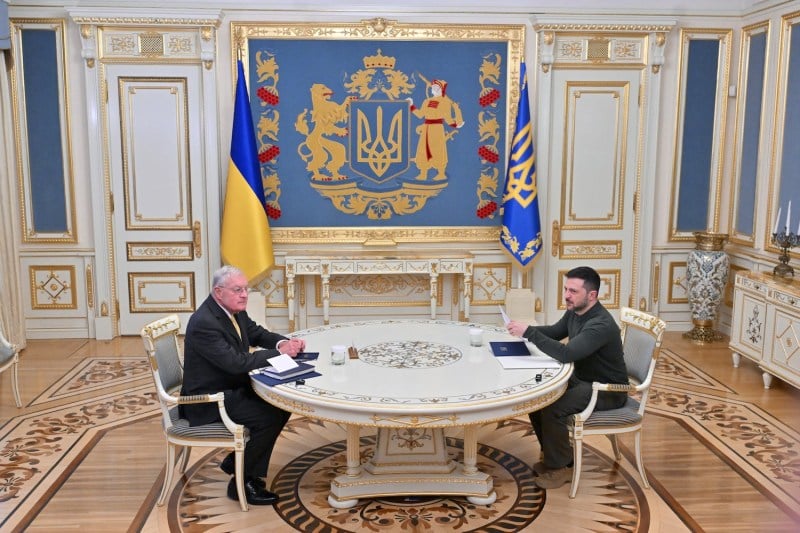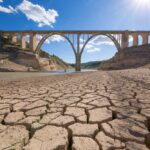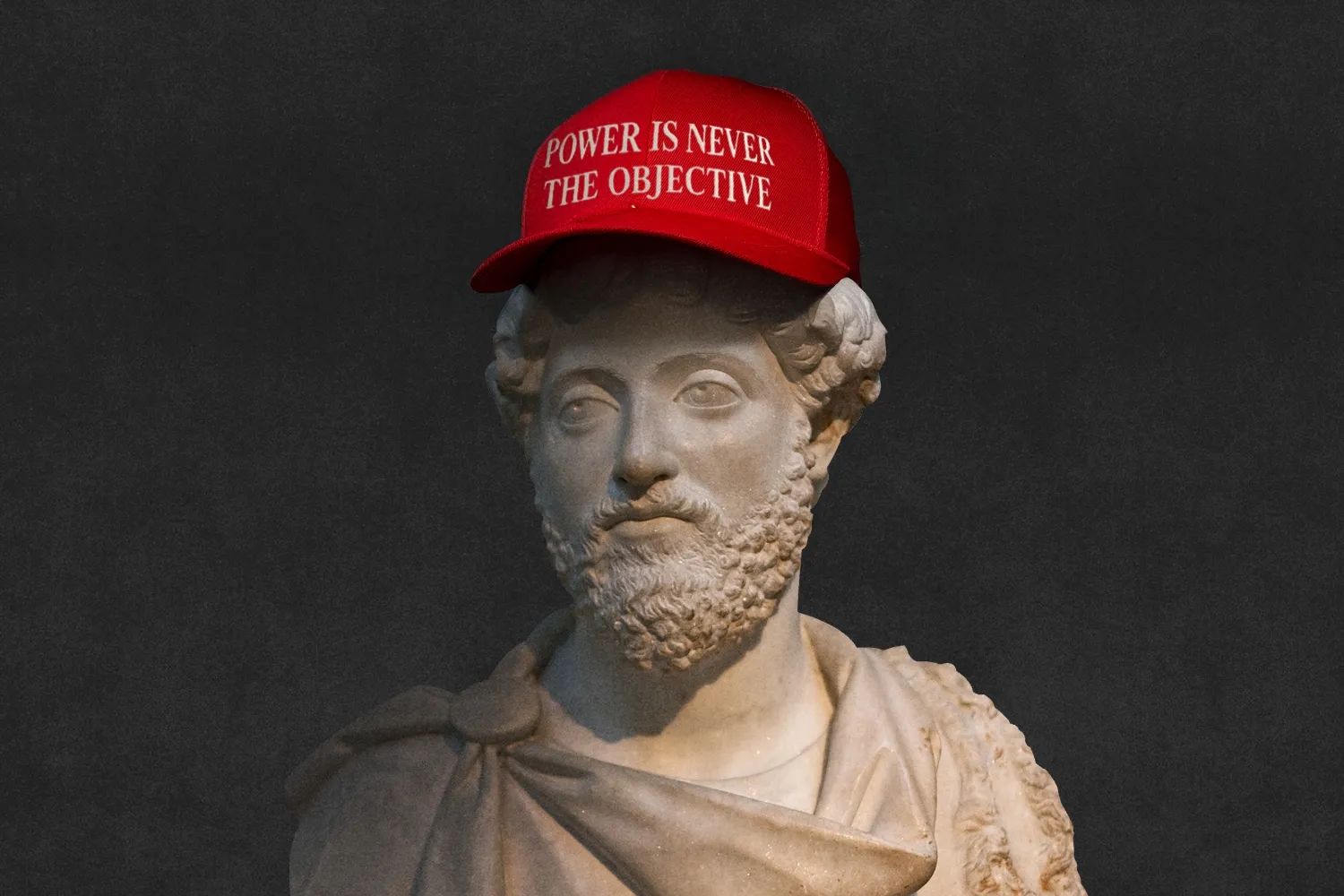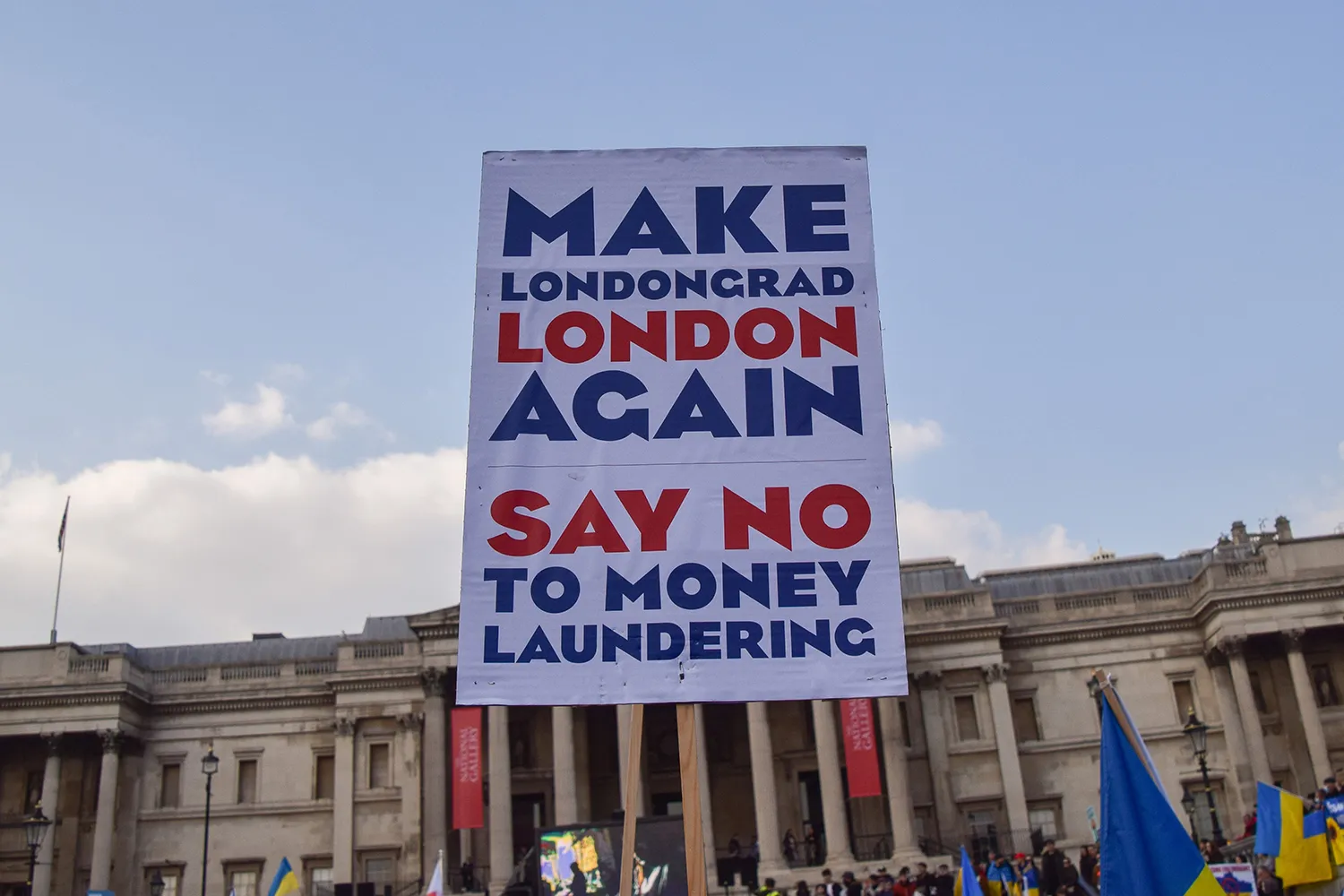Where Does the U.S.-Ukraine Rare-Earth Deal Stand?

Where Does the U.S.-Ukraine Rare-Earth Deal Stand?
The prospect of an agreement looks increasingly uncertain.
Ukrainian President Volodymyr Zelensky speaks with U.S. envoy Keith Kellogg in Kyiv on Feb. 20. Sergei Supinsky/AFP via Getty Images
The fate of a potential U.S.-Ukraine rare-earth deal looks increasingly uncertain after Kyiv balked last weekend at Washington’s draft proposal to exchange continued U.S. military support for half of Ukraine’s mineral resources.
U.S. policymakers care about rare-earth elements and other critical minerals and metals, such as titanium and gallium, because they underpin everything from advanced weapons systems to clean energy technologies. Yet China overwhelmingly commands the global supply chains for many of these resources, sparking a race in Washington to diversify away from Beijing’s grip.
The fate of a potential U.S.-Ukraine rare-earth deal looks increasingly uncertain after Kyiv balked last weekend at Washington’s draft proposal to exchange continued U.S. military support for half of Ukraine’s mineral resources.
U.S. policymakers care about rare-earth elements and other critical minerals and metals, such as titanium and gallium, because they underpin everything from advanced weapons systems to clean energy technologies. Yet China overwhelmingly commands the global supply chains for many of these resources, sparking a race in Washington to diversify away from Beijing’s grip.
For all of the talk of Ukraine’s mineral riches, the country does not actually produce any rare earths now, nor has it produced any supplies in recent decades—casting doubt over what a potential agreement could actually achieve. Geological data is scant, and the ongoing war has rendered valuable territory inaccessible and would throw a wrench into any efforts to engineer new mineral supply chains in the country.
Still, hopes for an agreement were high last week, when both Kyiv and Washington appeared to be inching closer to a deal. At the time, Ukrainian President Volodymyr Zelensky had expressed hopes that the two countries would reach a consensus at the recent Munich Security Conference.
But in Munich, the Ukrainian leader rejected the proposed U.S. deal, saying that the draft agreement did not provide security guarantees for Ukraine. While U.S. President Donald Trump has said that he wants $500 billion worth of minerals to compensate Washington for its support during the Russia-Ukraine war. According to Zelensky, the amount of aid Washington has given Kyiv is nowhere near that number.
“You can’t call this $500 billion and ask us to return $500 billion in minerals or something else. This is not a serious conversation,” Zelensky said on Feb. 19, noting that Washington has given Kyiv $67 billion in weapons and $31.5 billion in direct budget support since Russia’s full-scale invasion began in February 2022. “I can’t sell our state.”
Zelensky’s resistance has infuriated Trump, who has recently echoed the Kremlin’s talking points as he has intensified his rhetoric against the Ukrainian leader. On Feb. 19, Trump accused Zelensky of breaking the rare-earth deal, despite no such deal having been signed yet. On Feb. 20, U.S. Treasury Secretary Scott Bessent said that the Ukrainian leader had “assured me that he would be signing the minerals deal in Munich and he has not.”
“The sequencing of what was going to happen was: bring the Ukrainians closer to the U.S. through economic ties, convince the American people, the American public, get them onside,” Bessent said. “And then tell the Russians, go to the negotiating table with a very fulsome message that if we need to, we will take sanctions up.”
He also portrayed the minerals deal itself as a form of security guarantee for Ukraine. “The US, with greater economic interest in Ukraine, provides a security shield,” he said.
U.S. officials now appear to be seeking a different path forward. The Trump administration may attempt to ink a simplified minerals pact first and then iron out the details later, Reuters reported. With such an initial agreement in place, Trump would then potentially be willing to authorize more U.S. aid or advance peace negotiations.
Axios reported today that Trump has offered Ukraine an “improved” mineral agreement draft, although exact details remain unclear. And U.S. National Security Advisor Mike Waltz said that Zelensky “needs to come back to the table” for negotiations.
Christina Lu is an energy and environment reporter at Foreign Policy. X: @christinafei
More from Foreign Policy
-

A security guard stands at the entrance to the U.S. Agency for International Development (USAID) headquarters on Feb. 3. DOGE Is Hacking America
The U.S. government has experienced what may be the most consequential security breach in its history.
-

A man with a beard in a suit and tie speaks behind a teleprompter. The logo for MSC is behind him. Vance Leaves Europe Gobsmacked
U.S. Vice President J.D. Vance delivered a rebuke on immigration and alleged censorship to a shocked Munich Security Conference.
-

A Palestinian girl carries a child through the rubble of houses destroyed by Israeli bombardment in Gaza City on March 3, 2024. Why Is the World So Polarized on Gaza?
The answer might be linked to race and colonization, explains author Pankaj Mishra, speaking on FP Live.
-

An attendee dressed like Uncle Sam waits for Donald Trump to arrive for a campaign rally at the Mosack Group warehouse on September 25, 2024 in Mint Hill, North Carolina. America Is Its Own Worst Enemy
It’s not unprecedented for a powerful country to simply shoot itself in the foot.










Join the Conversation
Commenting on this and other recent articles is just one benefit of a Foreign Policy subscription.
Already a subscriber?
.
Subscribe
Subscribe
View Comments
Join the Conversation
Join the conversation on this and other recent Foreign Policy articles when you subscribe now.
Subscribe
Subscribe
Not your account?
View Comments
Join the Conversation
Please follow our comment guidelines, stay on topic, and be civil, courteous, and respectful of others’ beliefs.
Change your username |
Log out
Change your username:
CANCEL
Confirm your username to get started.
The default username below has been generated using the first name and last initial on your FP subscriber account. Usernames may be updated at any time and must not contain inappropriate or offensive language.